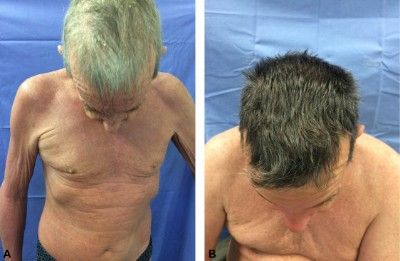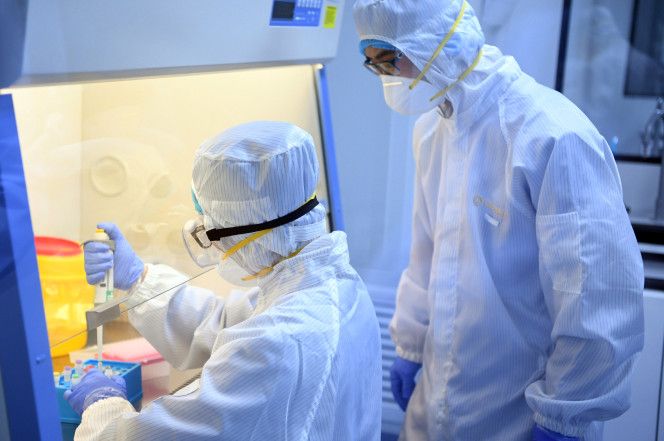Research suggests that a cure for grey hair is close. In the near future, it will be possible to reverse grey hair (also spelt gray).


Evolutionary Medicine — Linking human pathology with our past, present, and future evolutionary trajectories — ideaXme (http://radioideaxme.com/) welcomes Prof. Dr. Frank Rühli, Director of the Institute of Evolutionary Medicine, University of Zurich — #Ideaxme #EvolutionaryMedicine #Evolution #Microevolution #Paleopathology #BiologicalAnthropology #ComparativeAnatomy #Mummies #Mummy #Hypercholesterinemia #Diabetes #DrugAddiction #Health #Wellness #Regeneration #Longevity #Aging #IraPastor #Bioquark #Regenerage
Ira Pastor, ideaXme exponential health ambassador, interviews Professor Dr. Frank Rühli, Director of the Institute of Evolutionary Medicine and on the Medical Faculty of University of Zurich, and Founding Director, Chair, Full Professor of Evolutionary Medicine.
Ira Pastor Comments
Famous prominent Russian-American geneticist and evolutionary biologist, Theodosius Dobzhansky, stated in a 1973 essay that Nothing in biology makes sense except in the light of evolution.”
When one applies this principle to medical research, it suggests that if you study only the proximal causes of health and disease (pathophysiology), you get a limited picture, and such dynamics could be better understood within an evolutionary framework.

Well, it’s a good thing, but not what I was hoping for. 3 gene therapies though Church is otherwise testing 45. But this is not the rejuvenation I was getting optimistic about. Still, I’m sure as I am getting older that I will be grateful when a treatment comes my way for something when I am elderly. But frankly this was overhyped from the start and I was part of that equation spreading a “2025” figure for some time.
Gene Therapy.
An ‘anti-aging’ gene therapy trial in dogs begins, and Rejuvenate Bio hopes humans will be next.
The startup, spun out of George Church’s lab, has tested an experimental therapy that treats four age-related diseases in mice.
by.

Drugmaker Johnson & Johnson is “pretty confident” that it can create a vaccine to combat the deadly coronavirus, an exec said Monday.
Paul Stoffels, the company’s chief scientific officer, said it began working on a vaccine two weeks ago — and is hopeful that it can be developed within months, CNBC reported.
“We have dozens of scientists working on this so we’re pretty confident we can get something made that will work and stay active for the longer term,” Stoffels told CNBC’s “Squawk Box.”

Gilead Sciences said it is sending an experimental antiviral drug to China for emergency treatment of coronavirus patients as well as testing to see if it works against the virus.
Gilead Sciences Inc. said on Friday that it had provided doses of an experimental antiviral drug to doctors for the emergency treatment of a small number of patients infected by the new coronavirus.
What is Coronavirus According to the World Health Organization[i], Coronaviruses (CoV) are a large family of viruses that cause illness ranging from the common cold to more severe diseases such as Middle East Respiratory Syndrome (MERS-CoV) and Severe Acute Respiratory Syndrome (SARS-CoV).
What is 2019 Novel Coronavirus (2019-nCoV) The 2019 Novel Coronavirus (2019-nCoV) is a new strain of coronavirus that was first identified during an investigation into an outbreak in Wuhan, China. It’s important to note that how easily a virus spreads person-to-person can vary. Some viruses are highly contagious, while other viruses are less so. Investigations are ongoing to better understand the transmissibility, severity, and other features associated with 2019-nCoV, but there are indications that person-to-person spread is occurring[ii].
Know the Coronavirus Symptoms According to the CDC, patients with confirmed 2019-nCoV infections have reported mild to severe respiratory illnesses with symptoms including:

Researchers at the Institut Pasteur in France have become the second monitoring team in the world to sequence the entire novel coronavirus (2019-nCoV) genome in an effort to better understand its origin and virulent properties.
Nearly 8,000 reported cases and hundreds of deaths have been reported in at least 19 countries since the outbreak began in Wuhan, China, last December, prompting the World Health Organization yesterday to declare a public health emergency after evidence of human-to-human transmission had surfaced. International healthcare experts have since prioritized research surrounding 2019-nCoV in an effort to understand and tame the global outbreak.
“Sequencing the genome of pathogens is crucial for the development of specific diagnostic tests and the identification of potential treatment options,” explained Sylvie van der Werf, director of the National Reference Center (CNR) for Respiratory Viruses at the Institut Pasteur, in a statement.


Circa 2017 Bats harbor a large diversity of coronaviruses (CoVs), several of which are related to zoonotic pathogens that cause severe disease in humans. Our screening of bat samples collected in Kenya from 2007 to 2010 not only detected RNA from several novel CoVs but, more significantly, identified sequences that were closely related to human CoVs NL63 and 229E, suggesting that these two human viruses originate from bats. We also demonstrated that human CoV NL63 is a recombinant between NL63-like viruses circulating in Triaenops bats and 229E-like viruses circulating in Hipposideros bats, with the breakpoint located near 5′ and 3′ ends of the spike (S) protein gene. In addition, two further interspecies recombination events involving the S gene were identified, suggesting that this region may represent a recombination “hot spot” in CoV genomes. Finally, using a combination of phylogenetic and distance-based approaches, we showed that the genetic diversity of bat CoVs is primarily structured by host species and subsequently by geographic distances.
bMarie Bashir Institute for Infectious Diseases and Biosecurity, Charles Perkins Centre, School of Life and Environmental Sciences and Sydney Medical School, The University of Sydney, Sydney, Australia.
Find articles by Mang Shi
aDivision of Viral Diseases, Centers for Disease Control and Prevention, Atlanta, Georgia, USA.

If you are interested in superlongevity, then I have something that you must read. I have previously recommended a book by Dr. David Sinclair called Lifespan. Here I am recommending a research paper that discusses one of the critical experiments in epigenetic age reversal. Normally I would read a paper first before recommending it. However, I think this is a blockbuster, and it’s over 50 pages, so I can’t wait till my slow eyes finish before passing this on. Here is an excerpt:
Age reversal!
The primary research scientist is Yuancheng Lu.
Here’s a link to the research paper:
Ageing is a degenerative process leading to tissue dysfunction and death. A proposed cause of ageing is the accumulation of epigenetic noise, which disrupts youthful gene expression patterns that are required for cells to function optimally and recover from damage1 – 3. Changes to DNA methylation patterns over time form the basis of an ‘ageing clock’4, 5, but whether old individuals retain information to reset the clock and, if so, whether this would improve tissue function is not known. Of all the tissues in the body, the central nervous system (CNS) is one of the first to lose regenerative capacity6, 7. Using the eye as a model tissue, we show that expression of Oct4, Sox2, and Klf4 genes (OSK) in mice resets youthful gene expression patterns and the DNA methylation age of retinal ganglion cells, promotes axon regeneration after optic nerve crush injury, and restores vision in a mouse model of glaucoma and in normal old mice. This process, which we call recovery of information via epigenetic reprogramming or REVIVER, requires the DNA demethylases Tet1 and Tet2, indicating that DNA methylation patterns don’t just indicate age, they participate in ageing. Thus, old tissues retain a faithful record of youthful epigenetic information that can be accessed for functional age reversal.